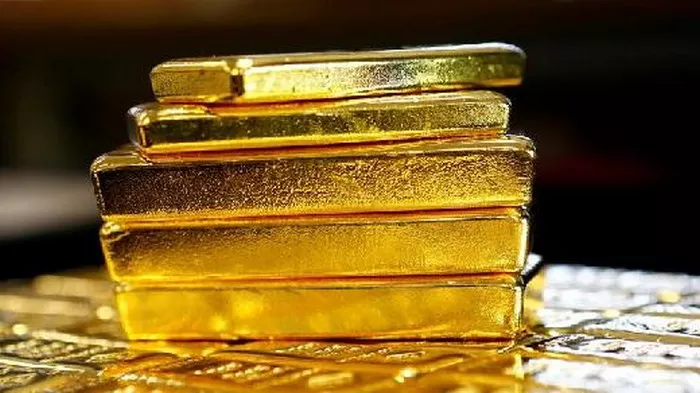In Asian trade on Friday, gold prices exhibited stability and approached the significant threshold of $2,050, fueled by optimism surrounding potential interest rate cuts from the Federal Reserve due to easing inflation concerns.
Spot prices for the precious metal neared the upper range of $2,000 to $2,050 per ounce, a trading bracket that had largely held steady throughout 2024. The recent data suggesting a decline in inflation has heightened expectations for Federal Reserve interest rate cuts.
Despite this positive momentum, the resilience of the dollar hindered more substantial gains in gold. The greenback strengthened in overnight trading and maintained its robust performance during the Asian session.
At 00:24 ET (05:24 GMT), spot gold steadied at $2,043.64 per ounce. Simultaneously, gold futures expiring in April experienced a marginal dip of 0.1% to $2,051.95 per ounce. Both instruments had recorded gains ranging between 0.4% and 0.6% on Thursday, buoyed by month-end buying following a relatively subdued performance in February.
The buoyancy in gold prices spilled over to other precious metals, with platinum futures rising by 0.3% to reach $885.45 per ounce and silver futures increasing by 0.3% to $22.953 per ounce.
The release of the Personal Consumption Expenditures (PCE) price index data, the Federal Reserve’s preferred inflation gauge, in January indicated an anticipated easing of inflation. This development heightened expectations that inflation would decrease in the coming months, potentially prompting the Federal Reserve to implement rate cuts in June.
Despite the positive data, the CME Fedwatch tool indicated only a slight increase in traders’ expectations for a rate cut in June, while bets on a rate hold remained steady. Several Fed officials cautioned against the haste in policy easing, suggesting that persistent inflation might delay the initiation of rate cuts.
The trajectory of precious metal prices in the coming months is expected to be influenced by inflation prints for February and March. Over the past two years, these prints have closely aligned with U.S. rate expectations, with rising rates negatively impacting gold due to increased opportunity costs associated with investing in the yellow metal. This trend has also impacted other metals in a similar fashion.


